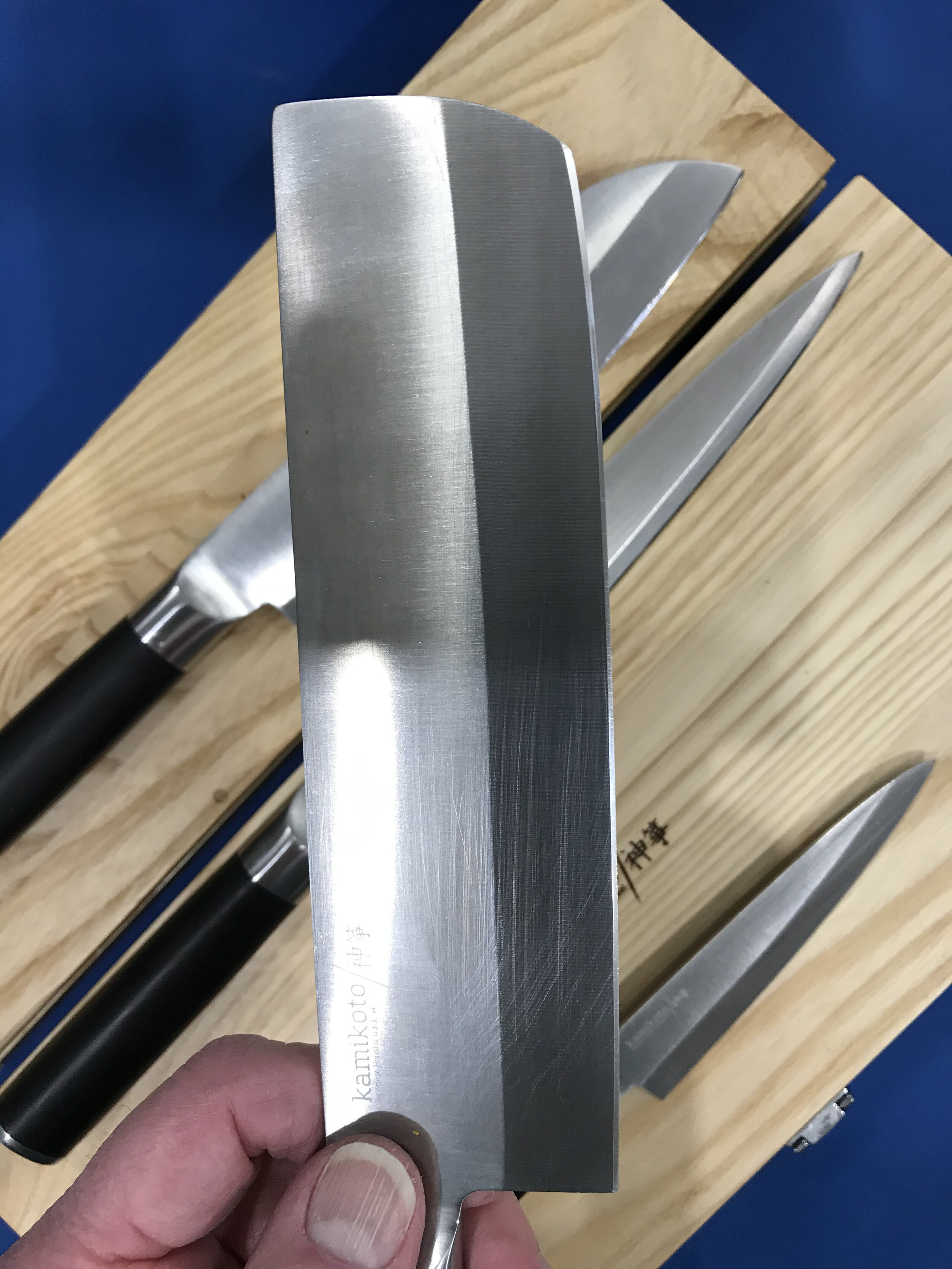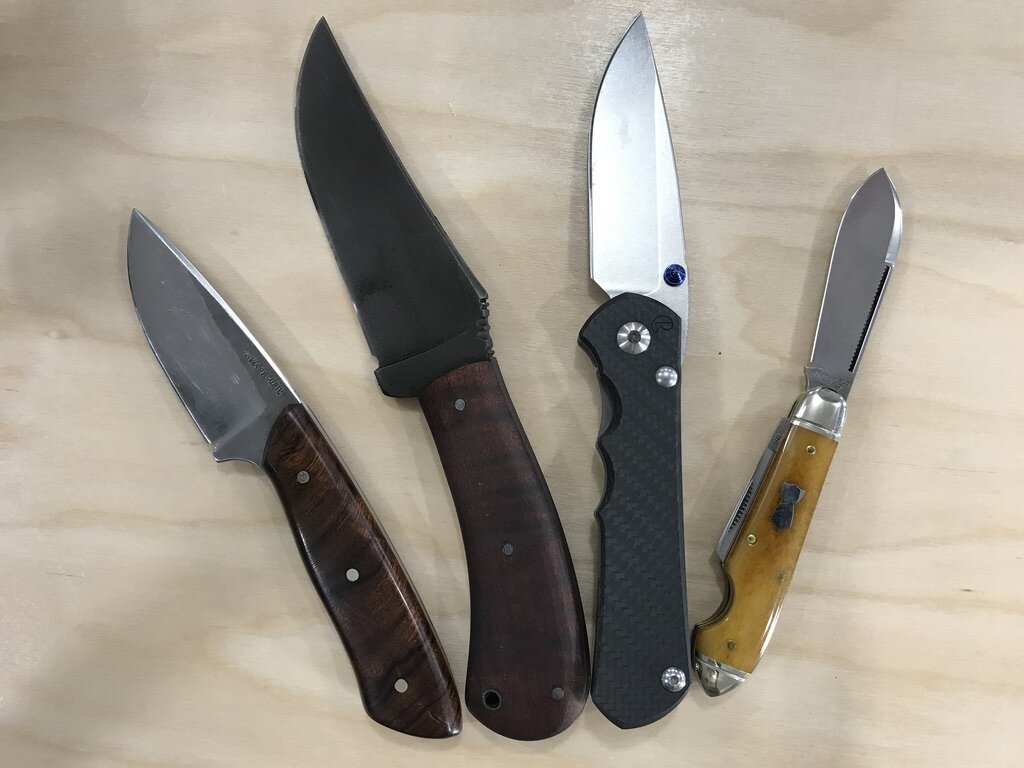
FAQs
What edged tools do you not sharpen?
I do not sharpen hand saws, chainsaw chains, or power saw blades.
I do not sharpen drill bits, woodturning tools such as bowl gouges, roughing or parting tools, or skews.
What is your turnaround time?
For rush orders, I can usually get your item(s) back to you within 24-48 hours, but our normal turnaround time is 3-5 days. For our pick-up and delivery service, turnaround time is one week, since our pick-up/delivery runs typically occur only on Wednesday afternoons & evenings.
Why do you use different types of stones, plates, and other tools when sharpening knives?
Many different types of steel are used to make knives and other edged tools. We all know about carbon steel and stainless steel. But within these two broad categories there is great variety, including high speed tool steels, high hardness steels, high toughness steels, and so forth. Newer “super steels” are increasingly used for pocket knives, kitchen knives, chisels, and plane blades; these steels usually have high carbide content, which lends to edge longevity and other preferred characteristics. Similarly, some traditional carbon steels can be brought to a high hardness and take a very sharp edge, but they may not hold that edge as long, especially if misused. Natural water stones and alumina-based synthetic stones are quite suitable for sharpening carbon steels at high hardness but are poorly suited to sharpening high carbide steels (e.g., steels with a percentage of vanadium, molybdenum, tungsten, etc.). The newer super steels such as K390, M4, Maxamet, Magnacut, 15v or S110v are best sharpened with CBN or diamond stones or wheels. Aside from the wide variety of steels in common use on edged tools today, customers often want specific types of edges on their tools, ranging from toothy edges which may be achieved with relatively low grit stones, plates, or grinder belts to highly polished edges requiring the use of high grit stones and strops.
